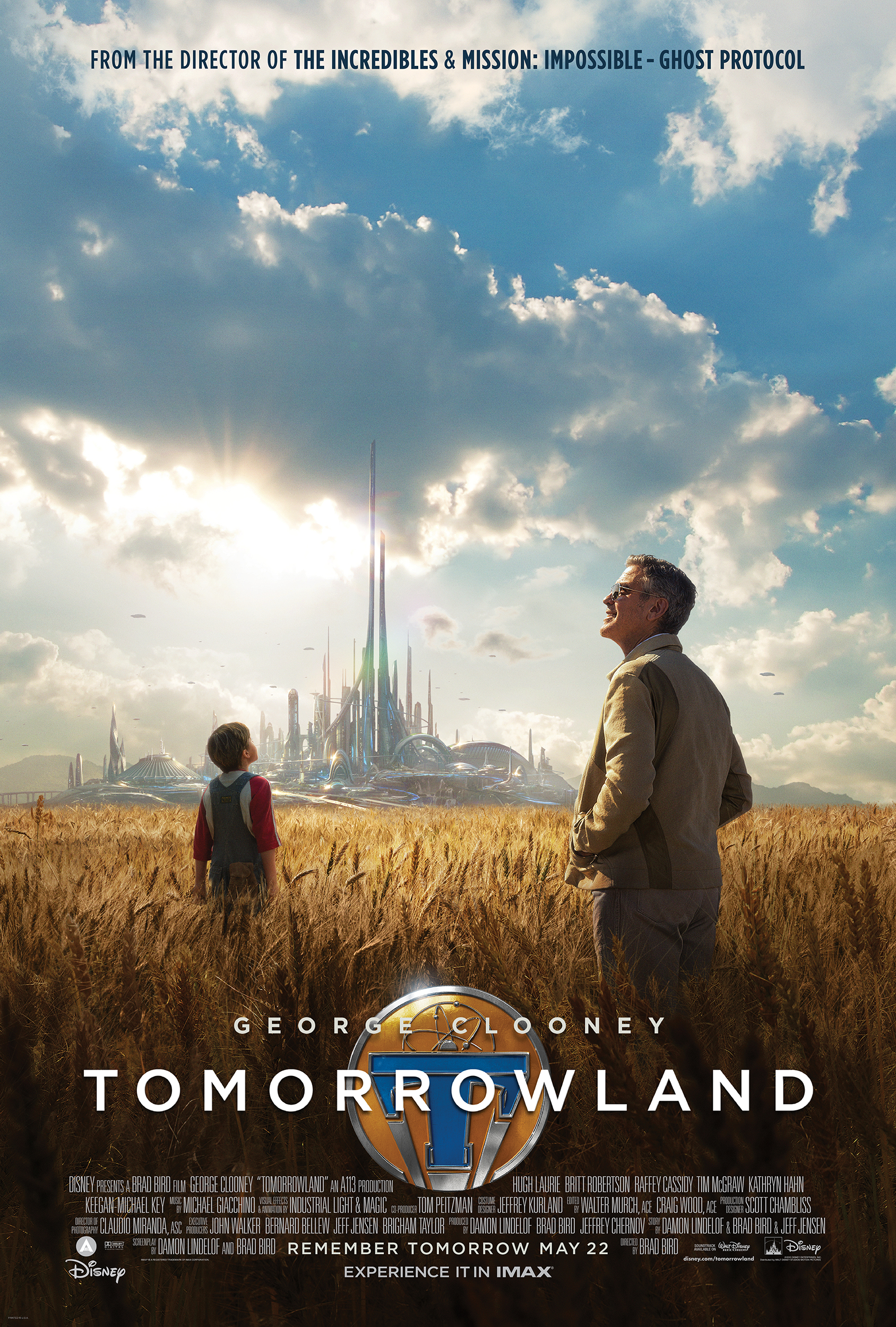Does it make me a bad writer (and a bad person) that I haven’t written a blog (or made a video) in nearly a month because of busyness and technology problems? I’d like to say, “No,” and attribute it to “life happens.” Regardless, my projects have slowed down a bit, and I’m writing this on my new laptop. But since I feel I owe it to you, “True Believers” (yes, I’m still stealing Stan Lee’s nickname for Marvel Comic readers until I can find a better name for my own fans), to make up for lost time, I plan to write two blogs this week: one today and one Thursday.

Recently, I saw Tomorrowland (which, despite what critics are saying, is a good film). It was a wonderful experience. I saw it at a locally-owned small town theatre with my siblings, Josiah, Jarod, and Sarah. This almost never happens because Josiah is married and recently had his first kid, and Sarah works in Florida for her alma mater, Word of Life Bible Institute. I can’t remember the last time the four of us had an outing like this.
Anyway, there’s much that can be mined from this film, but what struck me most was its idealism. (SPOILER WARNING!) Tomorrowland is a city hidden in another dimension. It is a place where scientists, thinkers, and artists can work without the limitations of governments, bureaucracy, and doubters. But only a select few are admitted to the city. Those chosen for admission are sent a pin that gives them an interactive glimpse of the city and invites them to join.

How is someone selected to enter Tomorrowland? He (or she) must be a dreamer. They must look at the world’s problems and ask, “How can we fix it?” They must believe that with imagination, ingenuity, and hard work, anything is possible. In other words, they must be optimistic and idealistic.
Casey, the film’s protagonist, exemplifies these. Several times when apocalyptic predictions are made, she refuses to believe they can’t be prevented, and her hope alters those projections, if only slightly. It’s revealed that a machine meant to show mankind the dangers that are coming—environmental disasters, nuclear war, etc.—instead made them cynical, so they rushed toward that apocalypse. They turned those warnings into pop culture, treating those dystopias and disasters as inevitable futures. Ultimately, it is hope that triumphs, reviving Tomorrowland and avoiding the oncoming apocalypse, and pins are sent out to new candidates for admission.
Watching this, I wondered, Would I be worthy of admission to Tomorrowland? I asked myself that because I’ve often battled cynicism and despair, especially since graduating college. I won’t go into the details, but my life hasn’t gone how I wanted it to. Just the week before seeing the film, I’d staved off a bout of depression. Yet whenever I’ve been like that, I didn’t feel like myself. It was like I was another person; it wasn’t the real Nathan. It reminded me that despite everything, in my heart of hearts, I’m an idealist. I’m also a dreamer. The cynicism and depression stem from not seeing many of those dreams become reality. There’s much I want to do and much I can contribute. Among them is telling stories to a wide audience that both entertain and enlighten. In fact, I want to craft stories that do for others what Tomorrowland did for me.
But hope is a tricky thing. It’s both powerful and fragile. Reality can crush it—and often does for many people—but it can also overcome and alter reality. It’s what spurs people to accomplish great things. They didn’t simply give up.
For centuries, people said man would never fly. The Wright Brothers didn’t listen.
America feared polio for decades. Dr. Jonas Sulk created a vaccine.
The Cold War raged for nearly five decades under the shadow of the Soviet Union. President Ronald Reagan defeated it.
I’m also reminded of Hebrews 11, which is often called “The Hall of Faith.” It lists figures from the Old Testament who accomplished great and often seemingly impossible things because of their faith in God.
These are the kinds of people who get admitted to Tomorrowland.
They’re the kind of people I want to be like.
